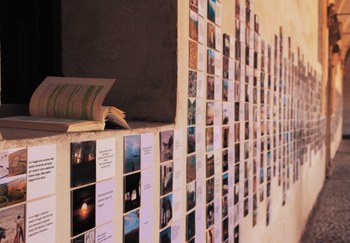Models of Knowledge
The Research Center in Knowledge and Cognition promotes a series of research projects concerning the relationship between truth, data and evidence, the acquisition and representation of knowledge, the nature of truth, the construction of knowledge and models of reality.

Some of the possible subtopics are:
- the cognitive mechanisms underlying behavior in learning and elaborating knowledge-based contents, construction of belief and decision;
- the study of relationships between perception, language, and world, with particular attention to the philosophy and phenomenology of perception on the one hand, and to aesthetic dimension and theory of sensitivity on the other;
- the relations between logical thinking, doxa, and philosophy;
- semiotic of veridiction and construction of reality effects;
- the relations between the construction of data in its socio-technical aspects, and the representation and use of evidence, and the spread of knowledge-based contents, both at level of dissemination and communications, referring also to epistemology of testimony and to social epistemology;
- the historical analysis of knowledge models, with a focus on the relationship between false, belief and likely;
- the philosophy and history of observation, experimentation, simulations, and construction of knowledge models, especially focusing on how observation and experimentation have evolved as bases of knowledge constructions; on what are nowadays the contributions of simulation and computational methods, and how experimentation is changing in recent years compared to the roles they have had in the past etc.;
- legal and judicial truths, presupposed, apparent, simulated and trustworthy truths;
- the origin and political variations of the relationship between truth and falsification;
- thought and symbolic formalization in sciences and arts;
- models and organization of knowledge;
- the diachronic study and philosophical analysis of the models of knowledge, observations, and experience;
- the technologically inscribed mechanisms of non-knowledge and secrecy creation;
- the governance conditions that lead to institutionalization and legitimations of knowledge;
- the possibility of different forms of relativism and alethic pluralism, and their capacity to offer a viable option to the traditional absolutist and monistic accounts of truth.